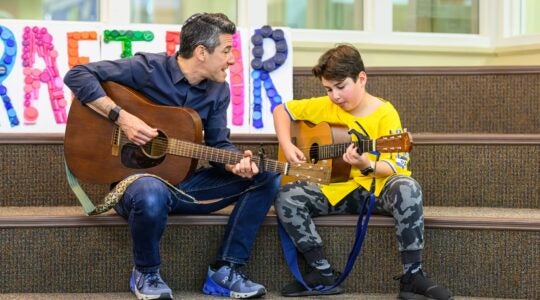The editor of the New Jersey Jewish News shares his thoughts on Hebrew school: Should it stay or should it go?
I saw the best minds of my generation destroyed by Hebrew school. Okay, I exaggerate. Many of them weren’t the best minds at all, and most spent way too much of their time watching Brady Bunch reruns.
But they hated Hebrew school, and it turned them off to Jewish life, sometimes for good.
And I’ll even say this: Bad Hebrew school experiences not only shaped the Jewish worldview of alienated baby boomers, but helped establish the priorities of our most active, most highly identified Jews. I have a hunch that the rise of the day school movement in the past 20 years is owed in no small part to Jewish professionals and philanthropists who, drawing on their own childhood trauma, felt the supplementary school model was unsalvageable. The best minds, and the big bucks, went into the day schools, attracting, in turn, parents with grim Hebrew school memories of their own.
And yet, the majority of children receiving a Jewish education in this country are enrolled in supplementary schools. That’s 230,000 kids at some 2,000 part-time schools.
And here’s another hunch: As the economy continues to falter, parents who were willing and able to pay day school tuitions will start to take a look at alternatives. It’s happening already.
The best and worst of what they’ll find is contained in a new report from the Avi Chai Foundation, “Schools That Work: What We Can Learn from Good Jewish Supplementary Schools.” Jack Wertheimer of the Jewish Theological Seminary led a research team that looked at 10 schools with reputations for getting it right. The optimist in me reads their report and thinks that where there’s a will there’s a way; the pessimist wonders if there is enough will and talent out there to carry its lessons into hundreds of synagogues and community schools.
Read the rest at the NJJN.
JTA has documented Jewish history in real-time for over a century. Keep our journalism strong by joining us in supporting independent, award-winning reporting.





